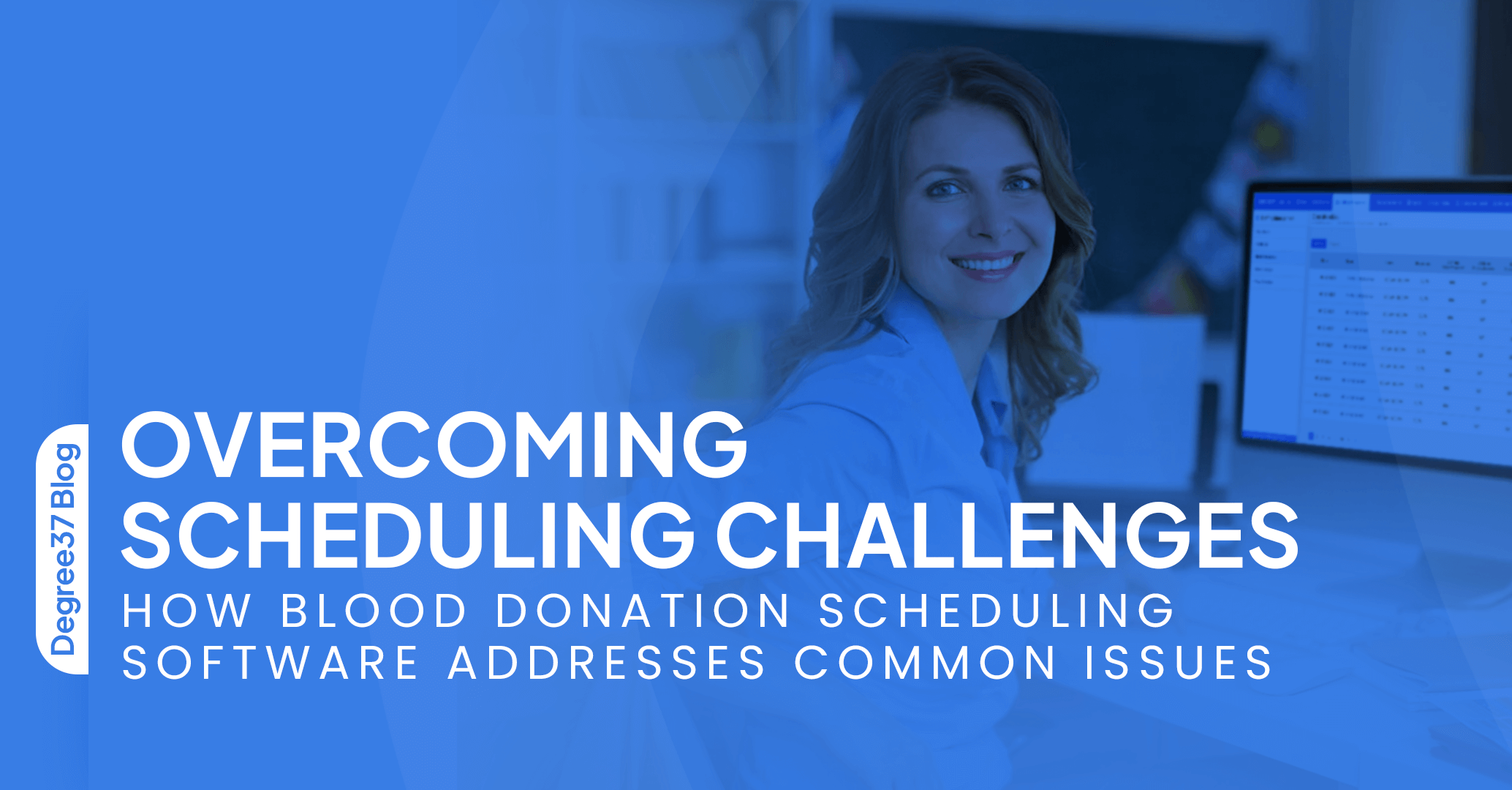The life-saving power of blood transfusions is undeniable. In the United States, someone requires blood every two seconds. Nonetheless, maintaining a safe and adequate blood supply is challenging. One factor that bridges this gap is effective blood donation scheduling to maintain a safe and adequate blood supply. One of the factors that bridge this gap is the effective scheduling of blood donations.
Traditional ways of making appointments can be challenging with missed and last-minute cancellations. It is not easy to fill in for the need for a specific blood type on such days. Blood donation scheduling software is a great way to overcome these challenges as it benefits both the donor and the blood center.
The Importance of Effective Scheduling
Scheduling is the backbone of successful blood drives and donor centers. A seamless scheduling process ensures that the right number of staff members are available to handle anticipated donor volumes, prevents overcrowding or long wait times that could deter donors, and helps maintain an optimal flow of donors throughout the day.
Scheduling for blood donation presents unique challenges. Factors like donor availability, staffing requirements, inventory needs, and potential cancellations or no-shows must all be carefully coordinated. Any misstep in the scheduling process can have ripple effects, leading to understaffed events, unhappy donors, or even shortages in the blood supply.
Addressing the Pain Points
Traditional scheduling methods, such as spreadsheets or paper-based systems, are often inadequate for the complexities of blood donation scheduling. These approaches are not only time-consuming and error-prone but also lack the flexibility and real-time updating capabilities that modern blood centers require. Fortunately, blood donation scheduling software is designed to address these pain points head-on.
Streamlining Donor Scheduling
One of the main benefits of scheduling software is streamlining the donor scheduling process. These platforms typically offer online self-scheduling portals, allowing donors to conveniently book appointments at their preferred times and locations. This not only enhances the donor experience but also reduces the administrative burden on staff.
Scheduling software can send automated reminders to donors, reducing the likelihood of no-shows and last-minute cancellations. Some platforms even offer waitlist management tools, ensuring that any open slots are promptly filled, maximizing donation opportunities.
Optimizing Staff Scheduling
Effective staff scheduling is crucial for maintaining smooth operations and ensuring donor satisfaction. Blood donation scheduling software often includes advanced staff scheduling capabilities, enabling organizations to easily assign staff members to specific shifts, locations, or roles based on their availability, skills, and certifications.
By automating staff scheduling tasks, these platforms minimize the risk of human error and ensure that the right people are in the right places at the right times. Some solutions even offer forecasting tools that help predict donor turnout, allowing for more accurate staffing decisions based on anticipated demand.
Inventory and Resource Management
Managing inventory levels and resources is another critical aspect of blood center operations. Blood center management software typically includes features for tracking inventory levels, equipment availability, and supply needs. This real-time visibility into resources enables organizations to make informed decisions about scheduling, ensuring that they have the necessary supplies and equipment on hand to meet donor demand.
Reporting and Analytics
Data-driven decision-making is essential for optimizing scheduling processes and improving overall efficiency. Blood donation scheduling software provides comprehensive reporting and analytics capabilities, allowing organizations to gain valuable insights into donor attendance patterns, staff productivity, and operational bottlenecks.
With access to detailed data and performance metrics, blood centers can identify areas for improvement, adjust scheduling strategies accordingly, and ultimately enhance their ability to meet the ever-changing demands of the blood supply chain.
Mobile Accessibility and Responsive Design
In today’s fast-paced world, mobile accessibility is a must-have feature for any modern scheduling solution. Many blood donation scheduling platforms are designed with responsive interfaces, ensuring a seamless experience for donors and staff across various devices, including smartphones and tablets.
Mobile accessibility not only enhances convenience for donors but also enables staff to manage schedules and appointments on the go, fostering greater flexibility and responsiveness in addressing scheduling challenges.
Enhancing Donor Engagement and Retention
Beyond addressing scheduling challenges, blood donation scheduling software can also play a crucial role in enhancing donor engagement and retention. By providing a user-friendly and streamlined scheduling experience, these platforms can improve donor satisfaction and increase the likelihood of repeat donations.
Some solutions offer integrated communication tools, allowing blood centers to stay connected with donors through targeted messaging, updates, and personalized reminders. This ongoing engagement can help build stronger donor relationships and foster a sense of community around the noble cause of blood donation.
Closing Thoughts
Effective scheduling is the cornerstone of successful blood donation operations, and blood donation scheduling software offers powerful tools to overcome common challenges in this area. By streamlining donor scheduling, optimizing staff allocation, managing inventory and resources, providing valuable insights through reporting and analytics, and enhancing donor engagement, these platforms empower blood centers to operate more efficiently and meet the growing demand for life-saving blood products.
As the healthcare industry continues to evolve, embracing innovative scheduling solutions will be crucial for blood centers to maintain a reliable and sustainable blood supply. By leveraging the capabilities of blood donation scheduling software, these organizations can overcome scheduling hurdles, improve operational efficiency, and ultimately save more lives through their invaluable work.
